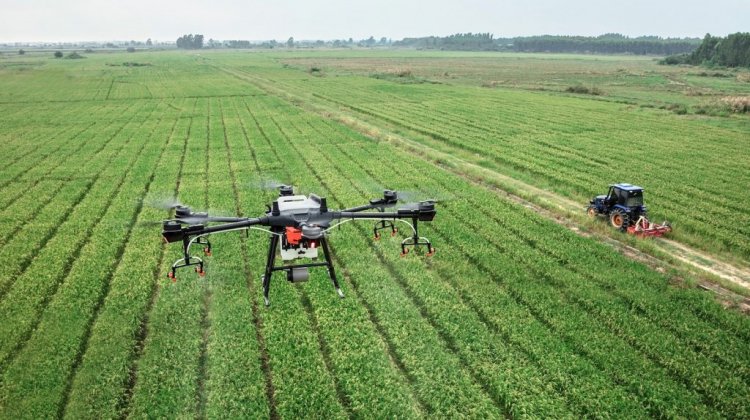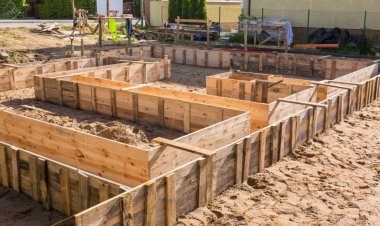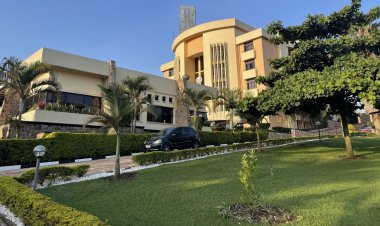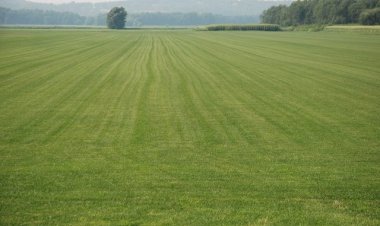AgriTech in Africa
Data analysis on weather patterns, soil quality and crop growth assists farmers in optimizing their crop yields and reducing waste by identifying the best time to plant.

With the ever-growing feeding population, Africa, for ages has been known and regarded as an agricultural producing land. African land has been utilized to cater for the needs of the people. With continuous tilling and usage of land, it tends to degrade and diminish in nutrient value thus calling for technology adoption. This works towards improving the existing agricultural land practices. Various African governments are investing and leveraging towards innovation and mechanization in agricultural practices and land maintenance hence adopting new and modern agricultural technologies, machines, crop care practices, irrigation facilities, warehousing and storage of production.
Agricultural technology commonly abbreviated as Agri-tech refers to technology applications that increase agricultural production with fewer inputs. Any technology that makes a farming process efficient is called Agri-tech. The push towards the adoption of technology on African land was contributed by previous problems encountered such as lack of access to data, high labour intensity with limited access to modern equipment, limited access to formal finance due to lack of collateral and lack of markets.
Agri-tech assists in the translation of technological innovations. Different innovations in this field have tackled issues right from field monitoring to farm produce distribution. African countries are using technology in different mannerisms such that drones, sensors and satellite trackers are used for field surveillance and environmental scanning conducting crop monitoring, soil quality and moisture levels thus providing farmers with real-time data on crop growth and helping them identify issues. Monitoring crop health helps farmers to act and prevent crop damage and ensure a healthy harvest.
Furthermore, precision farming is being practised where data analysis on weather patterns, soil quality and crop growth assists farmers in optimizing their crop yields and reducing waste by identifying the best time to plant and guides them to make informed decisions on the type and amount of fertilizers and pesticides to use.
There is also the use and application of big data technology used by the African agricultural industry for decision-making. Tech helps to collect different agricultural data such as agronomic data, environment and natural resource-related data, socioeconomic data and administrative data. Digital agricultural technology is mitigating challenges previously faced by African farmers by addressing the pain points and providing lasting benefits such as:
- Improving efficiency levels via modern agricultural tools which have helped tranquillize farmers' operations.
- Increased crop productivity through the use of modern tools. African farmers have increased crop yields and minimized waste.
- Helped in the evolution of energy-saving technologies namely solar panels which have become preferable sources of African green energy promoting environmental conversation and a long-lasting solution to climate change.
- The rise of healthier foods and promotion of nutrition awareness. Agri-tech has made it possible for farmers to establish safer growing conditions for foods.
- Utilization of water, fertilizers and pesticides has helped farmers in Africa with the knowledge of when and how much to apply.
- Digital information has helped connect producers and industrial raw materials users over data available on agricultural goods.
- Improved workmanship facilities. The new Agri-tech tools have cushioned farmers' working conditions and increased their safety at workplaces.
- Resulted in high-quality resilient crops. Through Agri-tech farmers have developed crops which are resilient to pests and diseases.
- Minimized environmental degradation and pollution. This is through the avoidance of the usage of harmful chemicals on the land.
Kenya and Nigeria are the leading countries in Africa in the Agri-tech market while Ghana is third. The three countries put together account for 60% of the active agritech startups in Africa. Kenya has a well-developed agricultural sector for both local consumption and international export. It has various innovative startups of digital agriculture offering financial services, enterprise development, market access and data analytics. The aim of Agri-tech innovation in Kenya is to get over one million Kenya farmers on digital platforms over the next coming years and ensure efficient land usage.
Nigeria employs artificial intelligence, machine learning and enterprise databases in providing functionality thus helping in reducing food waste, enhancing nutritional diet and sufficient land management. Ghana, by working in collaboration with Aiscarecrow Technologies has come up with a drone and stationery sound for scaring birds away. They also have Akokotakra which is poultry farm management software which assists poultry farmers in recording, analysing and making data-driven decisions on their farms through the use of their smartphones.
Rwanda has developed Hello Tractor an agricultural technology company that connects tractor owners and farmers through the Internet of Things enabling farm equipment sharing and application. In Ethiopia, Debo Engineering uses trending technology such as the Internet of Things, data science, mobile computing and other technologies to solve critical problems in Africa more so in agriculture. They additionally offer drone services to improve farm analysis and crop disease classification and prediction. In Uganda, Grain Pulse links farmers to fertilizers and markets. Its main aim is to strengthen farmers' supply and increase food production and economic growth in the country.
A country such as Egypt due to water storage and lack of fertile land has developed soilness farming which is commonly known as hydroponics and involves cultivating plants using nutrient-rich water outside the traditional soil. It is done in controlled greenhouses.
The transformation of the agricultural sector in emerging markets across Africa is quickly taking place through the emergence of Agri-tech startups. These startups are developing innovative business models and using a variety of old and new technology solutions. Such include:
Digicow Africa Ltd an Agri-tech startup in Kenya allows farmers to digitize their farm records, access training resources and receive real-time alerts on important dates.
Farmcrowdy Limited is Nigeria's 1st digital agriculture platform that connects farm sponsors with farmers. Farmers tend to use the sponsors' funds to complete a full farming cycle. Sponsors can truck farmers through periodic updates.
Cupmena on the other hand uses coffee waste to grow mushrooms. This is an Egyptian startup.
Beat Drone uses drones across several sectors of agriculture. Drones are used to help farmers improve their yields by spraying pesticides on farms, engaging in crop supervision and mapping farmlands.
Foodstock Farmers Market delivers fresh farm produce straight from the farm to the customer's doorstep in Nigeria.
3DIMO provides intelligent tools and insights for livestock health and welfare management and is situated in South Africa.
EzyAgric based in Uganda provides farmers with easy access to agro-inputs, credit financing, e-extension and advisory services as well as market linkages. It makes it easy to access loans.
In many African countries agriculture is the biggest employer of labour and also the biggest contributor to the gross domestic product and for it to be more productive people have no other alternative but to adopt the ever-increasing modern farming methods and technology brought about by Agri-tech.
Agri-tech has the potential to revolutionise agriculture in an eco-friendly way. It has shifted the African man's perception of agriculture. Agri-tech has helped to provide food security, reduce poverty, generate employment and conserve land property.
If you have a real estate press release or any other information that you would like featured on the African Real Estate Blog Post do reach out to us via email at [email protected]

































